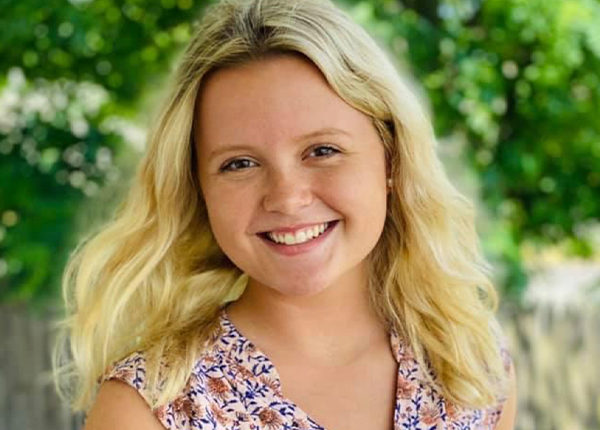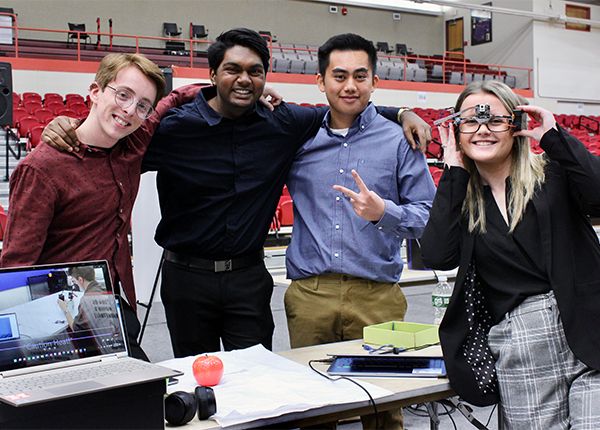

The University of Hartford offers numerous leadership opportunities for students interested in going the extra mile. Monica Padykula ’24, is one prominent CETA leader who has gone above and beyond to build industry connections, facilitate campus community, and work towards making a difference in the lives of others.
Padykula is a commuter student and biomedical engineering major actively involved in many of the College of Engineering, Technology, and Architecture (CETA) organizations. Entering her junior year, she is a Society of Women Engineers (SWE) and Tau Beta Pi Honors Engineering Society member, Lead Team 2 for CETA Ambassadors and Leadership Society, and the Internal Public Affairs Chair for Biomedical Engineering Society (BMES). While a commuter, Padykula intentionally seeks out on-campus leadership opportunities to enhance her academic and professional experience.
“Being a part of Biomedical Engineering Society has allowed me to grow my network with biomedical engineers from inside and outside UHart. I’ve met graduates who have gone directly into the workforce, grad school, med school, or even law school. In addition, networking “mixers” helped heighten my awareness of biomedical engineering uses,” Padykula shared.
Her extensive involvement in the CETA Ambassadors and Leadership Society has also played a major role in building up her UHart experience. As a student ambassador, she is responsible for helping to promote CETA through personalized prospective student and family visits that offer a student-life perspective. Advising the prospective households has also helped to improve her interpersonal communications skills.
From a young age, Padykula knew she wanted to pursue a profession that impacted the lives of others. Growing up surrounded by medical professionals, she developed interest in a career where she could invent medical technology.
“Entering the University of Hartford, I was always interested in biomechanics. There are limitless problems to solve and the devices you invent could make a huge difference in a lot of people’s lives.” She explained.
Padykula advocated that UHart’s biomedical engineering program helped encourage interdisciplinary skills, a necessary characteristic to become a successful engineer. Various collaborative projects like those presented in the CETA Design Expo, have provided hands-on learning experiences. In fact, her team, “See-4-Me” was one of three winning sophomore Design Expo teams. Together, they developed a wearable assistive device for the blind community that uses object detection through a small camera. If an object was detected, the type of object and location would be announced in the device’s speaker, located on the side of the frames.
When reflecting on her UHart experience so far, Padykula shared that the UHart community is one of her favorite aspects of the school.
“As a commuter, it is important for me to build relationships with both fellow students and staff.” Both students and faculty have played an important role in encouraging her academic success. With graduation only a few years away, she is excited to start identifying career goals and discovering what leadership opportunities lie ahead.
Monica Padykula ’24, Biomedical Engineering, CETABeing a part of Biomedical Engineering Society has allowed me to grow my network with biomedical engineers from inside and outside UHart. I’ve met graduates who have gone directly into the workforce, grad school, med school, or even law school. In addition, networking “mixers” helped heighten my awareness of biomedical engineering uses